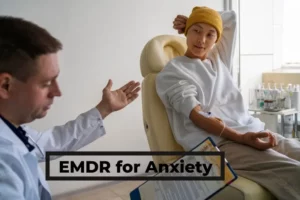Introduction
As we get older, it is essential to stay healthy and active. But what does healthy ageing mean?
Well, the answer varies from person to person. Healthy ageing generally means maintaining a good quality of life as you age. Let us learn more about healthy ageing and how to achieve it.
What is healthy ageing?
As we grow older, our bodies change in many ways. Physical changes are part of the normal ageing process; however, some material changes are not usual or desirable. For example, changes with age can affect how our bodies function and how we feel about ourselves.
Common changes while ageing may include:
-
Changes in skin and hair colour
-
Vision problems
-
Reduced muscle tone (slight loss of muscle mass)
-
Decreased strength and flexibility in joints
-
Lessened immunity and increased vulnerability to illness
As we age, our bodies undergo changes that can reduce the quality and longevity of our lives. In addition to physical changes, people experience emotional, cognitive, and social changes as they age.
Healthy ageing is about maintaining your emotional health, physical abilities, and mental abilities throughout your lifespan. When you are healthy, you will have more energy to enjoy the things you like to do, and you will also be able to live independently for extended periods.
How do you age healthily?
The answer is simple: eat right, exercise, and drink lots of water. It is a mantra repeated by health experts everywhere.
But what does it mean?
-
Firstly, recognize that healthy ageing doesn’t mean just maintaining good health. It means staying active, enjoying life, and avoiding unhealthy habits like smoking and overeating that can significantly shorten your lifespan.
-
We can practice lifestyle changes such as diet and exercise and keep ourselves engaged meaningfully.
-
As we age, we are more likely to develop chronic health conditions like heart disease, diabetes, and arthritis. But with proper care and management, we can control most of these conditions.
-
Regular exercise, a healthy diet, and regular medical check-ups help you remain fit as you age.
For any plan to work, you must take action on multiple fronts; eating better and exercising are essential steps toward improving your health.
The benefits of healthy ageing
It is essential to be aware of the many benefits of healthy ageing to take advantage of them as much as possible.
-
The most significant benefit of healthy ageing is that it helps keep you active and engaged with the world around you. It also allows you to manage stress, which many people struggle with later.
-
Healthy ageing can help you live longer, which means more time for your family and friends to spend with you.
-
It can help reduce the risk of many types of diseases and illnesses. Studies have shown that people who live long usually have a lower risk of heart disease and cancer than those who die younger than 65. It is because of their better diets and lifestyles.
Common psychological disorders in old age and how to manage them?
As we age, we may be more susceptible to certain psychological disorders. Here are some of the most common conditions affecting older adults and some tips on managing them.
Anxiety disorder
It is one of the most common psychological disorders in older adults. Symptoms can include feeling restless or tense, difficulty sleeping, and easily fatigued. If you are experiencing any of these symptoms, you must talk to a doctor or mental health professional.
Depression
It is another common psychological disorder in older adults. Symptoms can include feeling hopeless or worthless, irregular sleep patterns, and losing interest in joyful activities.
Cognitive disorders
Cognitive disorders such as dementia are an issue in older adults. Symptoms can include memory loss, difficulty communicating, and difficulty with everyday tasks.
There are many ways to manage psychological disorders in older adults. Some treatments include medication, therapy, and lifestyle changes. Working with a doctor or mental health professional is essential to find the best treatment for you.
Some essential tips for healthy ageing
If you want to age well, there are many ways to do it. You can start with simple things like eating healthy foods and drinking lots of water. If you want more tips on how to age well, read on!
1. Get regular physical activity
Regular physical activity is essential for everyone but is critical for older adults. Exercise can help prevent or reverse many medical conditions, including obesity, high blood pressure, diabetes, and heart disease. It also helps maintain bone density and muscle strength, which reduces as people age.
2. Eat a balanced diet rich in fruits and vegetables
A diet low in fats and sugars offers many health benefits, including increased energy levels and reduced heart disease and stroke risk. In addition to fruits and vegetables, older adults should eat whole grains, lean meats, poultry, and fish at least twice a week.
3. Get enough sleep
You should aim for seven or more hours of sleep each night. The National Sleep Foundation recommends 7-9 hours per night for adults over 18, and it will help reduce heart disease and stroke risk and improve mood and memory function.
Conclusion
As we age, we must remain aware of our health and take steps to age gracefully. Eating a balanced diet, exercising regularly, and getting adequate sleep are critical for maintaining our health as we age.
Additionally, staying socially active and mentally engaged can help keep our minds sharp as we age. Caring for our bodies and minds allows us to age gracefully and enjoy our later years.
Furthermore, with age, one may face specific stressors, such as retirement, the death of loved ones, and health problems. It is essential to find ways to cope with these stressors healthily. For some, it may mean finding a hobby or activity that brings them joy; for others, it may mean seeing a therapist or counsellor.
United We Care is an online mental health platform that provides professional help and support to those with mental health issues. Visit our website today and start your journey toward healthy ageing!
References
[1] N. Peel, H. Bartlett, and R. McClure, “Healthy ageing: how is it defined and measured?,” Australas: J. Ageing, vol. 23, no. 3, pp. 115–119, 2004.
[2] Cloudfront.net. [Online]
[3] J. S. McPhee, D. P. French, D. Jackson, J. Nazroo, N. Pendleton, and H. Degens, “Physical activity in older age: perspectives for healthy ageing and frailty,” Biogerontology, vol. 17, no. 3, pp. 567–580, 2016.
[4] A. Kalache and I. Kiekbusch, “A global strategy for healthy ageing,” Who. Int. [Online]. Available: https://apps.who.int/iris/bitstream/handle/10665/330616/WH-1997-Jul-Aug-p4-5-eng.pdf. [Accessed: 03-Mar-2023].











